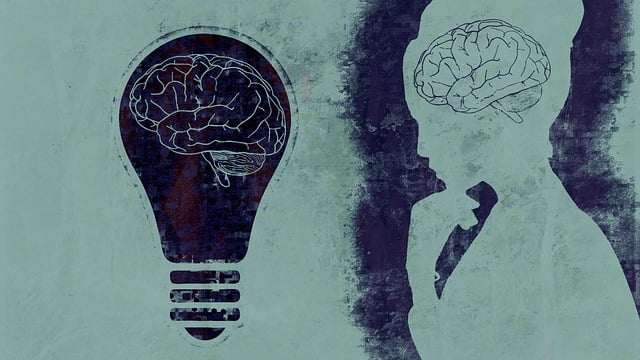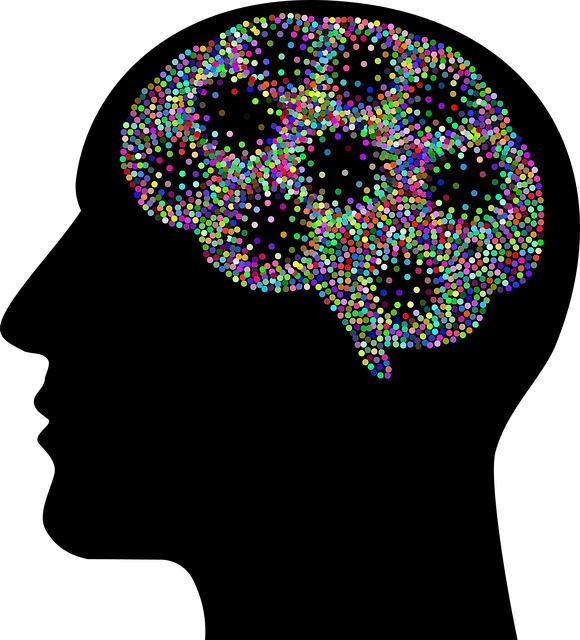Centennial Gambling Therapy offers a comprehensive approach to healing from loss, grief, and bereavement, integrating Mental Health Education, Compassion Cultivation, and tailored Mental Wellness Coaching. Through professional counseling, public awareness campaigns, and stress management workshops, this innovative method empowers individuals with coping strategies, mindfulness techniques, and resilience to navigate intense emotions, adapt to daily life changes, and find closure after significant loss. Their holistic approach prioritizes therapist self-care while fostering strong therapeutic alliances to support clients through their unique grieving process.
Loss, grief, and bereavement are profound experiences that can significantly impact an individual’s well-being. This comprehensive article explores these complex emotions, offering a detailed overview of their effects on mental health. We delve into innovative therapeutic approaches, such as Centennial Gambling Therapy, to understand how counseling plays a pivotal role in navigating the challenges after a loss. By addressing common difficulties and providing effective strategies, this guide aims to support individuals and communities in healing during bereavement.
- Understanding Loss, Grief, and Bereavement: A Comprehensive Overview
- The Role of Counseling in Navigating Difficulties After Loss
- Centennial Gambling Therapy: An Innovative Approach to Healing
- Identifying Common Challenges During the Grieving Process
- Effective Strategies for Supporting Individuals Through Bereavement
Understanding Loss, Grief, and Bereavement: A Comprehensive Overview

Loss, grief, and bereavement are complex and deeply personal experiences that vary widely from person to person. Understanding these processes is crucial for anyone seeking support or offering assistance during difficult times. Loss refers to the absence of something valued, whether it’s a loved one, a relationship, or a life stage. Grief is the emotional response to loss, often characterized by feelings of sadness, anger, confusion, and loneliness. Bereavement, on the other hand, is the period after a significant loss when individuals navigate their new reality without the presence of what or who they’ve lost.
At Centennial Gambling Therapy, we recognize that these experiences can be incredibly challenging and may lead to long-lasting mental health issues if left unaddressed. That’s why our comprehensive approach integrates the Mental Health Education Programs Design and Compassion Cultivation Practices to foster healing. Through tailored Mental Wellness Coaching Programs Development, individuals learn coping strategies, process their emotions, and cultivate compassion towards themselves and others during this difficult journey.
The Role of Counseling in Navigating Difficulties After Loss

After experiencing a significant loss, many individuals find themselves navigating uncharted territory, grappling with intense emotions and a sense of disorientation. Here, counseling plays a pivotal role in guiding them through this challenging journey. Through professional support, individuals can learn to process their grief, understand their feelings, and develop coping strategies tailored to their unique experiences. Centennial Gambling Therapy offers a safe space for expression, encouraging clients to explore and accept their emotions without judgment.
This therapeutic approach fosters the development of inner strength, empowering individuals to manage stress and navigate life’s curveballs more effectively. Beyond individual counseling, organizations can facilitate public awareness campaigns and stress management workshops to further support those affected by loss. By addressing the psychological impact of grief, counseling helps individuals find closure, rebuild their lives, and rediscover a sense of purpose amidst their sorrow.
Centennial Gambling Therapy: An Innovative Approach to Healing

In recent years, Centennial Gambling Therapy has emerged as an innovative and effective approach to healing from loss, grief, and bereavement. This therapeutic method goes beyond traditional counseling by incorporating unique techniques that cater specifically to individuals dealing with these complex emotions. By focusing on mindfulness, self-care, and resilience, Centennial Gambling Therapy helps clients navigate the challenging path of grief while empowering them with valuable tools for burnout prevention.
This therapy design emphasizes the importance of mental health education programs tailored to individual needs. It teaches participants effective stress reduction methods, enabling them to manage their emotional well-being even in the face of significant loss. Through a supportive and compassionate environment, clients learn to process grief, foster healthy coping mechanisms, and eventually, find solace and peace. Centennial Gambling Therapy offers a transformative journey, helping individuals not only survive but thrive after bereavement.
Identifying Common Challenges During the Grieving Process

The grieving process is a complex journey, often filled with challenges that can vary greatly from person to person. Common hurdles include intense emotions like sadness, anger, and guilt, which may manifest as prolonged periods of depression or anxiety. Many individuals also struggle with practical concerns, such as adapting to daily life without their loved one, especially when the loss involves a primary caregiver or a close family member. The impact of loss can be further complicated by existing mental health conditions or substance use disorders, like Centennial Gambling Therapy, which may require specialized support.
Self-care practices and stress management techniques play a crucial role in navigating these challenges. Engaging in activities that promote relaxation and reduce stress, such as exercise, meditation, or creative pursuits, can aid in alleviating symptoms of grief. Additionally, adopting effective stress reduction methods helps individuals manage their emotional responses and promotes better decision-making during an otherwise turbulent time.
Effective Strategies for Supporting Individuals Through Bereavement

Supporting individuals through bereavement requires a nuanced approach that goes beyond mere advice or sympathy. Effective grief counseling involves active listening, empathy, and a deep understanding of each person’s unique journey. At Centennial Gambling Therapy, we emphasize the importance of tailoring support to individual needs, recognizing that there is no ‘one-size-fits-all’ solution for healing. Our therapists employ evidence-based techniques like cognitive-behavioral therapy (CBT) to help clients process their emotions, challenge unhelpful thinking patterns, and develop coping strategies tailored to their specific experiences.
Beyond direct counseling, we advocate for integrating Emotional Well-being Promotion Techniques into daily life. This includes encouraging healthy habits such as regular exercise, adequate sleep, and mindful practices like meditation or journaling. We also stress the importance of Risk Management Planning for Mental Health Professionals, ensuring therapists are equipped to handle their own emotional load while providing support to clients. Fostering a strong therapeutic alliance, combined with self-care practices for both professionals and grievers, creates a nurturing environment conducive to healing and promotes resilience through the difficult process of bereavement.
Loss, grief, and bereavement counseling play a pivotal role in helping individuals navigate the challenging waters of emotional healing. By understanding the complexities of these processes, therapists can employ innovative approaches like Centennial Gambling Therapy to offer effective support. This comprehensive overview has highlighted the importance of addressing common challenges during grieving, emphasizing that every individual’s journey is unique. Effective strategies discussed herein provide a roadmap for supporting those in bereavement, ensuring they receive the necessary tools and resources for long-term healing and resilience.














